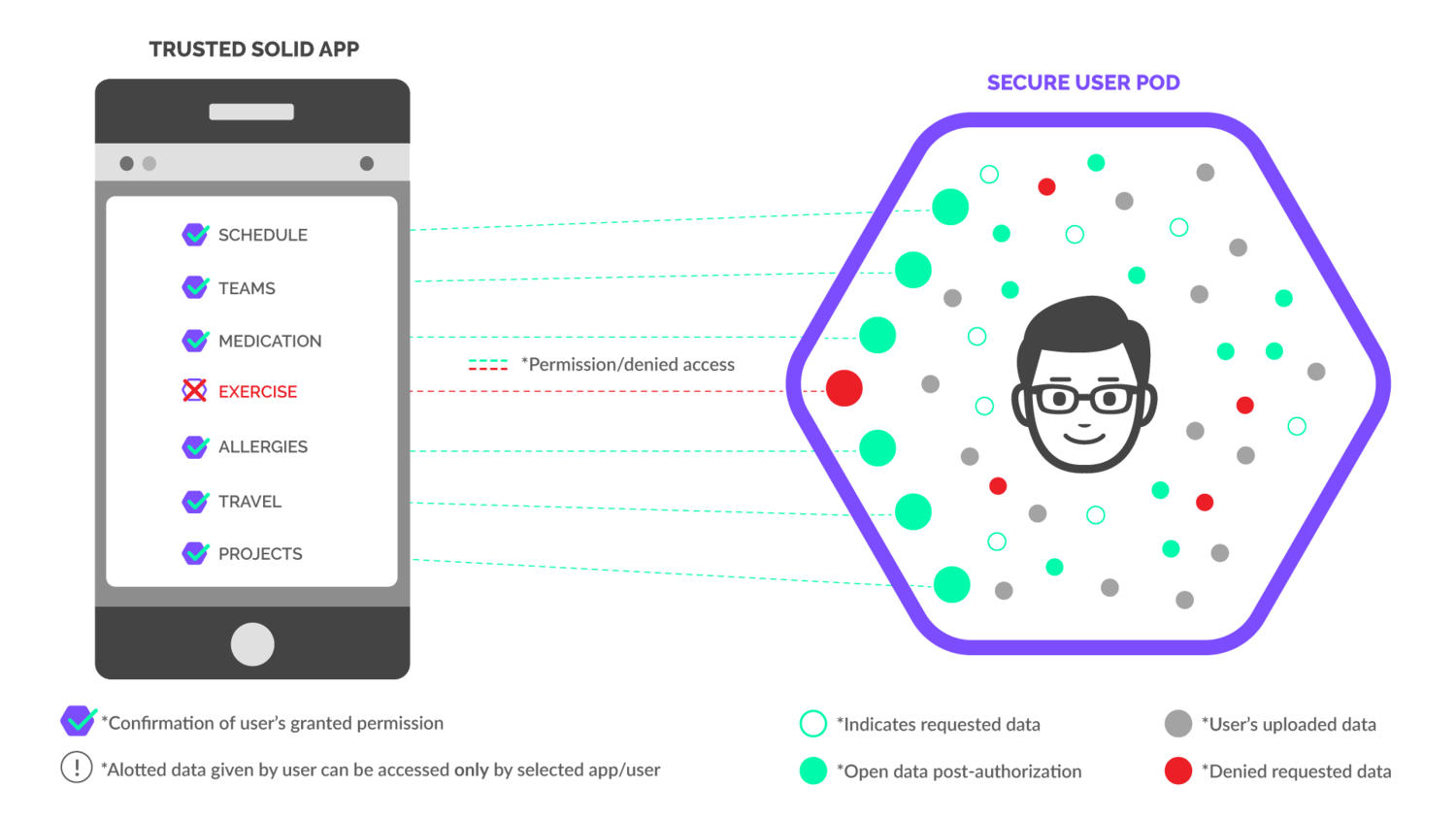Why it matters: The internet is not what its founder, Tim Berners-Lee, wanted it to be. It has finally exploded into his dream of an open resource that everyone can see and interact with, purchase things, connect and innovate on. But that’s come with something no one saw coming back when the internet was in its infancy: unwanted control and manipulation of our data.

For several years Sir Tim Berners-Lee and his team at MIT have been developing a decentralized platform designed to give every internet user full control over their data: Solid (Social Linked Data). This week he is revealing the first start-up to take advantage of the Solid platform, called Inrupt. Berners-Lee and his partner John Bruce will lead a small team of inspired developers to take the power back from the internet giants.
“The intent is world domination. We are not talking to Facebook and Google about whether or not to introduce a complete change where all their business models are completely upended overnight. We are not asking their permission.”
Berners-Lee says that Facebook’s continuous failure to protect its users is something that drives him: “We have to do it now. It’s a historical moment.”
I think we can all agree a change is sorely needed; only two days ago it was revealed that 50 million Facebook accounts may have been compromised. Berners-Lee says that Facebook’s continuous failure to protect its users is something that drives him: “We have to do it now. It’s a historical moment.”
Solid works through something called a Solid POD, a Personal Online Data storage system. A POD is simply a file that contains all your data: videos, images, calendar, address, preferences, friend lists – everything from where you work to the name of your Labrador. The Solid development team is working on software that creates and manages a POD, and once it is fully complete (soon, we’re told) companies and individuals will be able to create and use their own POD servers. What this means is that you can store your own POD on an internet-connected device or simply pay a company to store it for you.
Any and all sites or apps that want access to information about you simply ask your POD for it – depending on your choices, it will say yes or no. For example, a social media platform may ask your POD for your name, age, phone number and any images you might want to share. But the social media platform doesn’t control the information: by disabling the platform’s access to your POD the information is removed.

This is where Inrupt enters the fray: it allows you to create a POD on Inrupt’s servers, and it will create apps and assist other companies to create apps using Solid. Technically, you can create a POD right now on their website and play around with calendar and note-taking apps, but, to be frank, the interface is dreadful and nowhere near ready for use. Inrupt is currently funded by Glasswing Ventures, who specialize in AI and other technology start-ups, but Inrupt is pursuing further funding.
The Solid platform is a good idea with good goals. Solid PODs are a good and technologically feasible execution of that idea. But will it get its feet off the ground?
We can look at this in two ways. The first is the perspective of an up-and-coming platform. It’s brilliant; the next big thing. Like pretty much all platforms, ad-revenue is an important aspect. The platform’s creators are faced with a choice: use PODs to protect users’ data and make less money, or trust that they can protect users’ data themselves and make more money. The creators will likely have good intentions (think WhatsApp or Telegram) but it is hard to find investors who'll agree to make less money.
The second perspective is of an established platform. Take YouTube as an example. It would be extremely difficult for them to switch over to PODs even if they wanted to: shareholders would not be impressed by suddenly switching over to a less profitable business model (e.g. non-targeted ads). Particularly when they can easily just continue with their current business model.
The bottom line is, the Solid platform is a brilliant idea but because it doesn’t make economic sense, it’s hard to envisage widespread adoption. Unless Inrupt can somehow make PODs profitable for companies to adopt, or create their own platforms to rival Google and Facebook, our data will remain in the hands of the corporate giants.
https://www.techspot.com/news/76691-inventor-internet-has-unveiled-plan-new-secure-internet.html